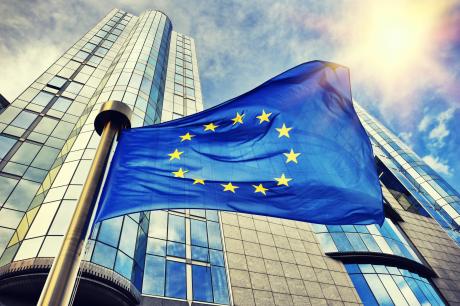
Any stakeholder can participate in the EPC payment scheme change-management process organised by the EPC, and the EPC also conducts a dialogue with stakeholders in formal bodies. The EPC is also involved in other stakeholder initiatives, which contribute to payments standardisation, though they are not directly related to the schemes.

The Euro Retail Payments Board
One such external body is the Euro Retail Payments Board (ERPB). The ERPB is a high-level body chaired by the European Central Bank, bringing together the supply and demand sides of the industry to address strategic retail payments issues. Major topics impacting the EPC SEPA payment schemes can be discussed at the ERPB.
The Scheme End-User Multi-Stakeholder Group (SEU MSG)
The SEU MSG is formed by representatives of European associations of end-users of the EPC payment schemes and payment-related schemes, such as consumers, corporate treasurers, e-merchants and retailers.
The Scheme Technical Player Multi-Stakeholder Group (STP MSG)
The STP MSG is made up of the representatives of technical players who provide services facilitating the processing of transactions under the EPC payment schemes and payment-related schemes. Members of this group include, for example, Clearing and Settlement Mechanism organisations, technical solution providers and messaging services companies.
The EPC regularly involves these groups in the evolution of the EPC payment schemes and payment-related schemes. These groups have an active part to play as they can address issues and make recommendations to the EPC. The EPC publishes their positions and comments on the change requests that were subject to a public consultation.
The SEU MSG and STP MSG are renewed on a two-yearly basis, starting from their creation in January 2022.
There are still vacant seats among some categories within the SEU MSG and the STP MSG. Further information about the criteria to be a candidate, and how to apply for membership, is available in the Terms of Reference pages of the SEU MSG and the STP MSG.
Further information about these groups, summaries of their past meetings, and their positions on the latest public consultations on the EPC scheme rulebooks are available via the following links:
At its 29 September 2021 meeting the Board confirmed the establishment of the SEPA Payment Account Access Multi-Stakeholder Group (SPAA MSG) which is expected to develop a scheme in relation to access to payment accounts (SPAA) - with the legal and regulatory requirements of PSD2 constituting the 'baseline’, but also going beyond such baseline to encompass value-added (‘premium’) services that may be provided in the context of ‘open banking’ as a natural evolution of PSD2 - in line with the requirements defined in the June 2021 report of the ERPB Working Group on a SEPA API Access Scheme.
The publication of the formal first version of the SPAA scheme rulebook is foreseen by end November 2022 (subject to Board approval). The SPAA scheme itself is expected to enter into force in November 2023 (to be confirmed).